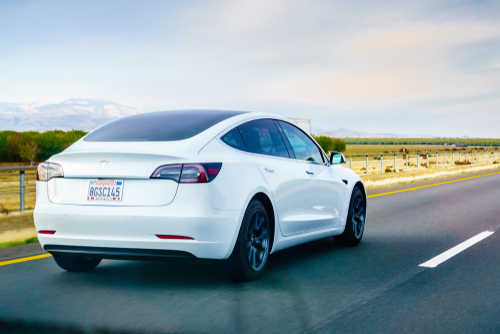
On Sept. 25, U.S. Sens. Deb Fischer (R-NE), Pete Ricketts (R-NE), John Cornyn (R-TX), and Cynthia Lummis (R-WY) introduced legislation that electric vehicles (EVs) pay into the Highway Trust Fund.
Fischer, a member of the Senate Commerce Committee, said the legislation is to ensure that EVs contribute to the Highway Trust Fund (HTF). Currently, the HTF is supported by taxes on gasoline, but EVs do not contribute to the HTF. Additionally, Fischer’s office said, the average EV is significantly heavier that gas-powered automobiles because of the weight of their batteries. The legislation, the “Stop EV Freeloading Act,” would require additional investment in the HTF from EVs to help pay for the construction and maintenance of U.S. roads and bridges.
“It’s not fair to force the millions of Americans who don’t drive EVs to foot the bill for those who do. Our legislation will stop EVs from freeloading and force them to pay into the Highway Trust Fund like other vehicles. If the Biden administration plans to continue pushing EVs on the American people, the least Congress can do is require EVs to support the upkeep of our nation’s infrastructure,” Fischer said.
Fischer said her legislation would implement a fee on EVs at the manufacturer level to ensure that every vehicle on the road pays into the HTF. The HTF supports over 90 percent of the federal highway aid to states. It was meant to be funded primarily by federal gas tax. During its most recent raise in 1993, the HTF faces insolvency, Fischer’s office said, due to more fuel-efficient vehicles leading to reduced fuel use.
Fisher’s office said the legislation is supported by American Road & Transportation Builders Association (ARTB), Associated General Contractors of America (AGC), National League of Cities (NLC), American Society of Civil Engineers (ASCE), National Association of County Engineers, and National Association of Counties.
“Every car that drives on our federal highways is responsible for paying into the Highway Trust Fund, and electric vehicles should be no exception. This legislation would ensure EVs pay their fair share and can’t cheat the system,” Cornyn said.